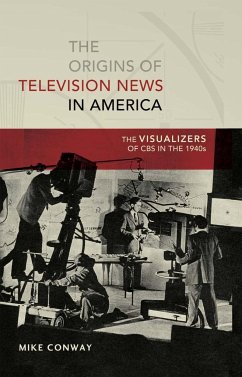
The Media's Role in Defining the Nation
The Active Voice
Versandkostenfrei!
Versandfertig in 6-10 Tagen
111,95 €
inkl. MwSt.
Weitere Ausgaben:

PAYBACK Punkte
0 °P sammeln!
In 1897, William Randolph Hearst said that his newspaper did not simply cover events that had already happened. "It doesn't wait for things to turn up", Hearst said. "It turns them up." This book traces the close relationship between media and the United States' development from the colonial period to the twenty-first century. It explores how the active voice of citizen-journalists and trained media professionals has turned to media to direct the moral compass of the people and to set the agenda for a nation, and discusses how changes in technology have altered the way in which participatory j...
In 1897, William Randolph Hearst said that his newspaper did not simply cover events that had already happened. "It doesn't wait for things to turn up", Hearst said. "It turns them up." This book traces the close relationship between media and the United States' development from the colonial period to the twenty-first century. It explores how the active voice of citizen-journalists and trained media professionals has turned to media to direct the moral compass of the people and to set the agenda for a nation, and discusses how changes in technology have altered the way in which participatory journalism is practiced. What makes the book powerful is that its assessment of the influence and use of media encompasses many levels: it explores the potential of media as an agent for change from within small communities to the national stage.













